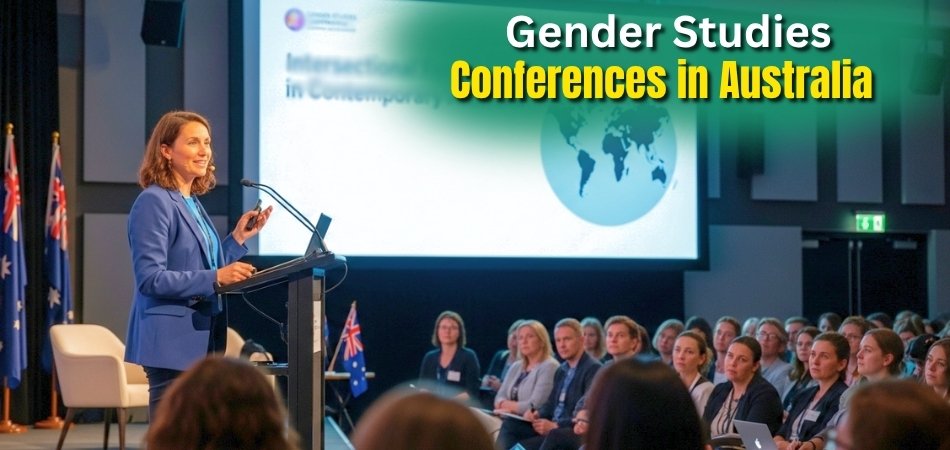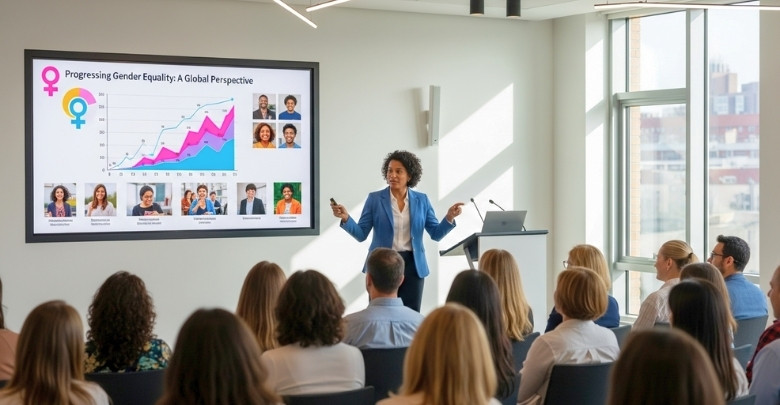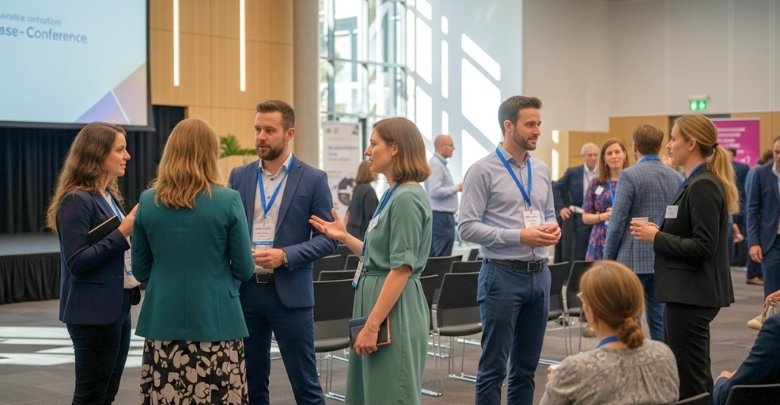Gender studies conferences in Australia bring together researchers, educators, and advocates who are working to create a more equal and inclusive society. These events serve as spaces where academic research meets real-world issues, inspiring collaboration and new perspectives. Whether focused on gender equity, social justice, or representation, each gathering plays a vital role in shaping dialogue and driving progress nationwide.
Among the most notable are the Global Conference on Gender and Disability Human Rights in Sydney, which explores the intersections of gender, inclusion, and accessibility; the Women Deliver 2026 Conference in Melbourne, known for uniting global leaders in gender equality and health; and the Australian Gender Economics Workshop at Monash University, where research meets policy to advance workplace diversity and leadership representation.
If you’re passionate about gender equality, advocacy, or academic collaboration, these conferences offer the perfect opportunity to learn, connect, and contribute. Explore the Top 10 Gender Studies Conferences in Australia and find the one that aligns with your goals and values.
Top 10 Gender Studies Conferences in Australia
| Date | Conference List | Location |
| November 14-16, 2025 | Global Conference on Gender and Disability Human Rights (GCGDHR) | Sydney, Australia |
| 6 November 2025 | WiTWA Tech[+] Conference (women in tech & DEI) | Perth Convention and Exhibition Centre – 21 Mounts Bay Road, Perth, Australia |
| December 04-05, 2025 | International Conference on Gender, Sexuality and Diversity Studies | Sydney, Australia |
| Feb 11–13, 2026 | 9th Annual Australian Gender Economics Workshop (AGEW 2026) | Monash University, Melbourne, Australia |
| 27–30 April 2026 | Women Deliver 2026 Conference | Melbourne, Australia |
| Mar 24–26, 2026 | PreventX 2026: Stories for Change | Melbourne Convention & Exhibition Centre, Australia |
| May 11-12, 2026 | International Conference on Gender, Sexuality and Diversity Studies | Sydney, Australia |
| 27–29 Jul 2026 | Australian Elder Abuse Conference 2026 Stand Up, Speak Out | Gold Coast, Australia |
| August 30-31, 2026 | International Conference on Social Sciences and Humanities | Sydney, Australia |
| Jun 10–12, 2026 | Australian Anthropological Society Annual Conference | Alice Springs (Mparntwe), Northern Territory, Australia |
Global Conference on Gender and Disability Human Rights (GCGDHR)
This conference explores the intersection of gender and disability within human rights frameworks. It connects academics, activists, and policymakers on practical approaches. As one of the notable conferences in Australia, the sessions in Sydney encourage dialogue on justice and equity. The event will run from November 14–16, 2025, bringing people together to share research, stories, and strategies that matter.
WiTWA Tech[+] Conference
This event celebrates the role of women in technology and explores the real challenges they face in creating a more inclusive industry. It features talks, networking, and industry panels. Scheduled for November 6, 2025, the conference will be hosted at the Perth Convention and Exhibition Centre, Perth, Australia. It aims to engage professionals and students looking to build fairer opportunities in science and technology.
International Conference on Gender, Sexuality and Diversity Studies (Dec 2025)
This academic gathering discusses research on gender, sexuality, and diversity across social sciences and education. Scholars share case studies and approaches to identity and culture. Taking place in Sydney, Australia, from December 4–5, 2025, it encourages open discussion between theory and practice. The conference provides an opportunity to reflect on how policies and social norms shape human experiences.
Australian Gender Economics Workshop (AGEW 2026)
AGEW focuses on the role of gender in economics, covering pay, leadership, and policy outcomes. It brings economists and social scientists together for evidence-based dialogue. The workshop will run from February 11–13, 2026, at Monash University, Melbourne. Sessions explore how equality measures can be strengthened in the workforce and society, offering insight into new research and practical applications.
Women Deliver 2026 Conference
This global event focuses on gender equality, health, and rights, bringing together diverse leaders and experts. It emphasizes solutions for challenges in policy, healthcare, and community work. The conference will be hosted in Melbourne, Australia, from April 27–30, 2026. With large-scale participation, the program highlights both international and local perspectives on advancing equality and creating lasting change.
PreventX 2026: Stories for Change
PreventX highlights primary prevention of family and gender-based violence. It shares research, community stories, and intervention strategies to reduce harm. The event is set for March 24–26, 2026, at the Melbourne Convention and Exhibition Centre. Participants include service providers, advocates, and policymakers who discuss real cases and outline practical approaches to building safer families and communities.
International Conference on Gender, Sexuality and Diversity Studies (May 2026)
The May edition continues to spotlight identity, diversity, and representation in society. It welcomes academics and students to present on education, law, and cultural studies. Hosted in Sydney, Australia, the conference takes place from May 11–12, 2026. With comparative and applied research at its core, it offers a platform for building dialogue across disciplines and perspectives.
Australian Elder Abuse Conference 2026: Stand Up, Speak Out
Elder abuse remains a deeply personal and social issue, and this event takes a closer look at its gendered impact and community challenges. Legal experts, carers, and advocates come together to share ideas and build solutions. Held on the Gold Coast, Australia, from July 27–29, 2026, the program focuses on protecting older people’s rights through research, policy, and practical action.
International Conference on Social Sciences and Humanities
This conference covers a wide scope of social science and humanities research, with a strong emphasis on gender and culture. It fosters cross-disciplinary dialogue through papers and discussions. Taking place in Sydney, Australia, from August 30–31, 2026, the event highlights case studies and comparative research. Its aim is to reflect on equity, diversity, and social change across multiple fields.
Australian Anthropological Society Annual Conference (AAS 2026)
The AAS conference brings anthropologists together to examine cultural and social issues, including gender and identity. It is valued for its inclusive and critical perspectives. The event will be held in Alice Springs (Mparntwe), Northern Territory, Australia, from June 10–12, 2026. With Indigenous voices and fieldwork findings central to the discussions, it offers a unique platform for academic exchange.
The Role of Gender Studies Conferences in Shaping Policy Discussions
Gender Studies Conferences in Australia often go beyond academic presentations. They create a bridge between research and real-world action by influencing how governments, institutions, and advocacy groups respond to gender-related challenges. The outcomes from these gatherings frequently shape new reports, guide reforms, and inform public debates. Here are some of the key ways gender studies conferences in Australia:
Informing Government Policy and Reports
Conferences act as a hub for sharing research that later appears in government white papers and reports. For instance, findings on gender pay inequities or workplace discrimination often filter into parliamentary discussions. In Australia, outcomes from such forums have informed updates to the Workplace Gender Equality Agency (WGEA) reporting framework and contributed to policy development on women’s safety and leadership.
Strengthening Institutional Practices
Universities and organizations often adopt recommendations presented at these events. For example, discussions around inclusive hiring, cultural safety, and parental leave practices have encouraged institutions to revise workplace policies. Australian higher education bodies also use insights from conference panels to update gender equity strategies, improving representation in leadership and research funding distribution.
Shaping Advocacy and Grassroots Campaigns
Advocacy groups draw heavily on evidence presented at gender-focused conferences. Campaigns on reproductive rights, health access, or protection from gender-based violence often rely on research shared in these settings. The data and case studies presented give campaigns credibility, allowing advocates to lobby state and federal governments more effectively and push reforms in domestic violence laws and health care.
Elevating Indigenous and Intersectional Perspectives
Many gender studies conferences highlight voices that are often overlooked in mainstream policymaking. Indigenous women, LGBTQ+ communities, and migrant populations bring critical perspectives that influence national debates. For example, recommendations around cultural safety in healthcare or justice reform for Indigenous women have been raised at these forums and later echoed in government-led inquiries and consultations.
Encouraging Cross-sector Collaboration
Conferences also encourage collaboration between sectors—government agencies, NGOs, researchers, and industry professionals. When these groups meet at the same table, they exchange strategies that influence broader reforms. For instance, discussions on family violence prevention have brought together health workers, educators, and policymakers, resulting in more integrated and coordinated service delivery models across Australia.
Monitoring Policy Impact and Accountability
Another key role of these events is holding governments accountable. Progress reports on gender equality are often presented, and participants critically examine whether previous policy commitments have been met. These discussions keep pressure on decision-makers and ensure that reforms are not just announced but also implemented effectively in communities and workplaces.
In this way, Gender Studies Conferences serve as more than academic gatherings. They operate as catalysts for change, ensuring that research and lived experiences directly inform the policies and practices shaping Australia’s gender equality sector.
How Academic Research on Gender Translates into Real-life Change?
Research presented at gender studies conferences in Australia rarely stays within academic circles. Instead, it moves into communities, workplaces, and policymaking spaces. The insights from universities and collaborative projects often become the foundation for programs, reforms, and legal updates that directly improve social conditions. Here are key ways gender research leads to real change in Australia.
Building Community Programs
Conference findings on domestic violence, reproductive health, and gender equity are often transformed into local initiatives. Community organizations rely on this evidence to develop support services, educational workshops, and awareness campaigns that meet real needs across Australia.
Driving Workplace Reforms
Research on gender pay gaps, flexible work, and leadership representation influences corporate policies. Companies and universities attending these conferences often update hiring practices, improve parental leave policies, and introduce diversity training informed by the latest academic findings.
Influencing Legal Change
Lawmakers and advocacy groups use conference presentations to push for reforms in domestic violence laws, anti-discrimination acts, and workplace safety. Evidence shared in these academic settings provides the credibility needed to shape legal amendments and parliamentary debates.
Strengthening Education Curricula
Universities integrate gender-focused research into their teaching. Courses on sociology, law, and health studies include findings first shared at conferences, ensuring that students are learning from the most up-to-date and socially relevant studies on gender equality.
Supporting Health and Wellbeing Services
Medical research on gendered health outcomes presented at conferences often informs public health strategies. Examples include improved access to reproductive services, gender-sensitive mental health care, and programs targeting Indigenous women’s health.
Encouraging Cross-sector Partnerships
Conferences create space for collaboration between researchers, policymakers, and community leaders. These partnerships turn academic research into joint projects—such as workplace safety campaigns or gender-responsive budgeting strategies—that deliver measurable outcomes across different sectors.
Through these pathways, gender-focused research shifts from theory to impact. Academic work presented at conferences becomes the driver of community programs, workplace reforms, and legal progress—showing how scholarship in Australia can reshape everyday lives for the better.
Challenges Faced by Scholars Presenting Gender-focused Work
Presenting gender-focused research at academic conferences in Australia is rewarding, but scholars often face barriers that limit their reach and impact. From financial obstacles to societal resistance, these challenges can restrict participation. Yet, conferences also provide an important platform to overcome them and gain visibility. Here are some of the main challenges scholars face when presenting gender-focused research in Australia.
Limited Funding Opportunities
Many gender researchers struggle with securing grants or travel funding. Since gender studies are often undervalued in traditional funding structures, scholars may need to rely on personal resources. This restricts who can present their work, especially early-career academics and independent researchers.
Lack of Institutional Support
Some universities prioritize other disciplines over gender studies, leaving scholars without institutional backing. This can affect access to conference sponsorships, publication opportunities, or mentorship, limiting how far their research travels beyond academic settings.
Societal Resistance and Backlash
Topics such as reproductive rights, LGBTQ+ issues, or gender-based violence can face resistance in public and political spaces. Scholars often encounter criticism or pushback, which can discourage them from presenting their findings widely.
Visibility Challenges
Even when scholars present at conferences, gender-focused sessions may attract fewer attendees compared to mainstream fields. This reduces the visibility of important research and makes it harder to build collaborations or gain recognition in wider academic communities.
Balancing Activism and Academia
Gender research often intersects with activism, and scholars face pressure to balance academic rigor with advocacy. Some critics question the objectivity of gender-focused work, creating an additional barrier to publishing and acceptance within traditional academic spaces.
Emotional and Personal Strain
Researching sensitive issues like violence, discrimination, or inequality can be emotionally taxing. Presenting this work in front of large audiences adds another layer of stress, especially when the topics challenge dominant narratives or expose systemic injustices.
Despite these barriers, conferences remain critical spaces for gender scholars to gain visibility, build networks, and amplify their work. By presenting research in supportive settings, they counter obstacles and ensure that gender-focused knowledge continues to influence academia and society.
Future Directions for Gender Equality Research in Australia
Gender equality research in Australia continues to evolve as new challenges and perspectives emerge. Upcoming conferences are expected to highlight areas that demand greater focus, including intersectional approaches, economic justice, health equity, and Indigenous knowledge systems. These directions will guide both academic work and practical reforms.
Intersectionality in Gender Studies
Future research will increasingly explore how gender interacts with race, class, disability, and migration status. This focus ensures that policies and interventions address overlapping inequalities rather than treating gender as a single, isolated issue.
Gendered Economics and Work Equity
Conferences will spotlight gendered dimensions of economics, such as wage gaps, unpaid care work, and retirement security. Research in this area provides evidence for fairer workplace policies and reforms that improve women’s financial independence and long-term stability.
LGBTQ+ Health and Wellbeing
There is growing recognition of health disparities within LGBTQ+ communities. Upcoming research aims to strengthen mental health support, healthcare access, and legal protections, ensuring that gender equality includes diverse sexualities and gender identities in Australian society.
Indigenous Perspectives on Gender and Equity
Indigenous scholars and communities continue to call for greater inclusion of their perspectives. Future research will focus on cultural safety, community-led solutions, and recognition of Indigenous women’s leadership in addressing social justice and equity issues.
Digital and Global Dimensions of Gender
Technology and globalization are reshaping gender dynamics. Research will examine digital safety, online activism, and how global migration impacts gender equality. These themes reflect Australia’s position in an interconnected world where gender issues cross borders.
By addressing these emerging themes, gender equality research in Australia is moving toward a more inclusive and practical future. Conferences will remain the central spaces where these conversations take shape, linking academic evidence to meaningful action for society.
Networking and Career Growth Opportunities in Gender Studies Fields
Attending Gender Studies Conferences in Australia offers more than academic learning. These gatherings help students, researchers, and activists expand their networks, connect with mentors, and explore career opportunities. With workshops, poster sessions, and panel discussions, participants gain practical exposure and connections that support both professional growth and advocacy. Here is how these conferences help build careers and connections.
Building Professional Networks
Conferences create a platform for attendees to meet peers, mentors, and leaders in gender studies. Informal conversations often lead to collaborations, internships, and long-term partnerships that strengthen academic and professional careers.
Workshops for Skill Development
Workshops at these conferences help participants build practical skills, from research methods to advocacy strategies. Students and early-career professionals benefit from hands-on learning guided by experts who share actionable advice.
Poster Presentations for Visibility
Poster sessions give emerging scholars the chance to present their ideas in an approachable format. This visibility helps them gain feedback, improve research, and attract interest from established academics and potential collaborators.
Panel Discussions for Broader Insight
Panel discussions bring together diverse voices—researchers, policymakers, and activists—to debate pressing gender issues. For participants, these conversations provide exposure to multiple perspectives and help refine their own approaches to research or advocacy.
Mentorship Opportunities
Conferences often foster mentorship connections, where experienced scholars guide younger researchers. These relationships can lead to advice on publishing, career planning, and navigating challenges within gender studies fields.
Career Pathways in Gender Research
Exposure to NGOs, academic institutions, and government representatives at conferences highlights the many career paths available. Attendees learn how gender studies connect with fields like law, health, policy, and education.
Through these opportunities, gender studies conferences act as career accelerators. They not only share knowledge but also connect people across disciplines, giving participants the networks and guidance needed to thrive in academic, community, or policy-related careers.
Frequently Asked Questions
Readers often want practical answers after going through a detailed list of Gender Studies Conferences in Australia. Below are some common questions that provide clarity about attending, preparing, and benefiting from these events.
What Skills Can I Gain From Attending Gender Studies Conferences?
You can gain research, presentation, and networking skills by attending. Workshops often focus on critical thinking, policy analysis, and advocacy strategies. These skills help you apply knowledge both in academic and professional contexts.
Are These Conferences Open Only to Academics?
No, many conferences welcome activists, students, policymakers, and professionals. Some sessions are tailored for non-academic participants through community panels or practical workshops. This inclusive approach allows diverse voices to contribute to gender discussions.
How Do I Prepare If It’s My First Conference?
Start by reading the program schedule and highlighting sessions most relevant to your interests. Prepare simple talking points for networking opportunities. Bringing copies of your work or résumé is also very helpful.
Can Attending Help With My Career Growth?
Yes, these events connect you with potential mentors, collaborators, and employers. Attendees often find research opportunities, internships, or pathways into advocacy roles. Networking is a major benefit beyond learning from the sessions.
What Types of Sessions Are Usually Included?
Typical formats include keynote speeches, research paper presentations, poster sessions, and interactive panels. Many conferences also run skill-based workshops for hands-on learning. These formats keep the experience engaging and accessible to different participants.
Do Gender Studies Conferences Offer Online Options?
Yes, some conferences provide hybrid models with online access. This allows international participants or those with limited travel budgets to engage fully. Virtual platforms often include Q&A sessions and networking spaces as well.
How Do Conferences Address Sensitive Topics Like Violence?
Organizers take special care when discussing sensitive subjects. Many include support services on-site and ensure safe spaces for participants. This approach helps create respectful dialogue while addressing important issues directly and responsibly.
Concluding Lines
Conferences on gender studies are more than academic events. They create spaces where important conversations about equality, diversity, and social change can happen. For many, they are also a chance to share stories and learn from others.
The Top 10 Gender Studies Conferences in Australia highlight how research connects with real life. From exploring human rights to addressing workplace equity, each event offers a different way to understand and respond to today’s challenges.
Whether you are a student, researcher, or professional, attending these conferences can open new paths for growth and collaboration. Exploring them is not just about knowledge, but about becoming part of a movement. Keep these events in mind as opportunities to connect and contribute.









